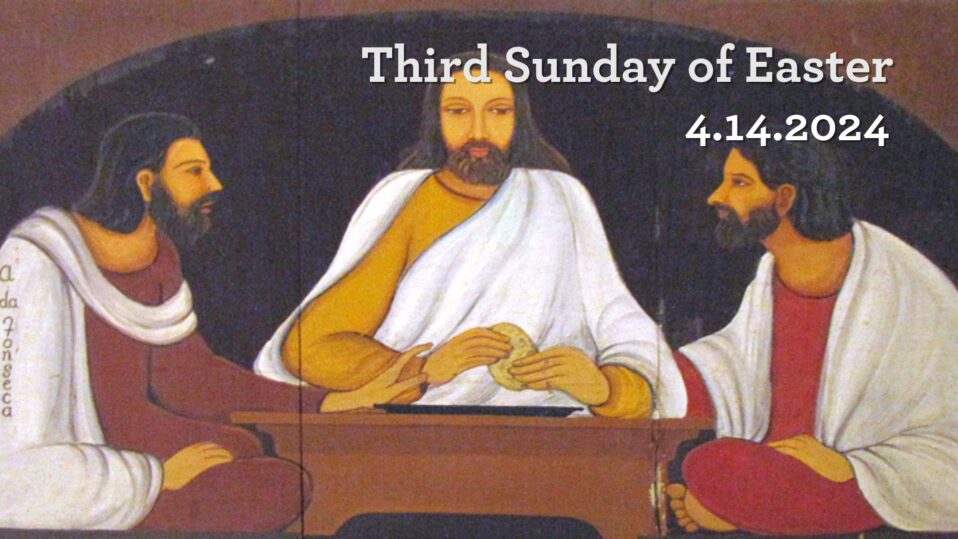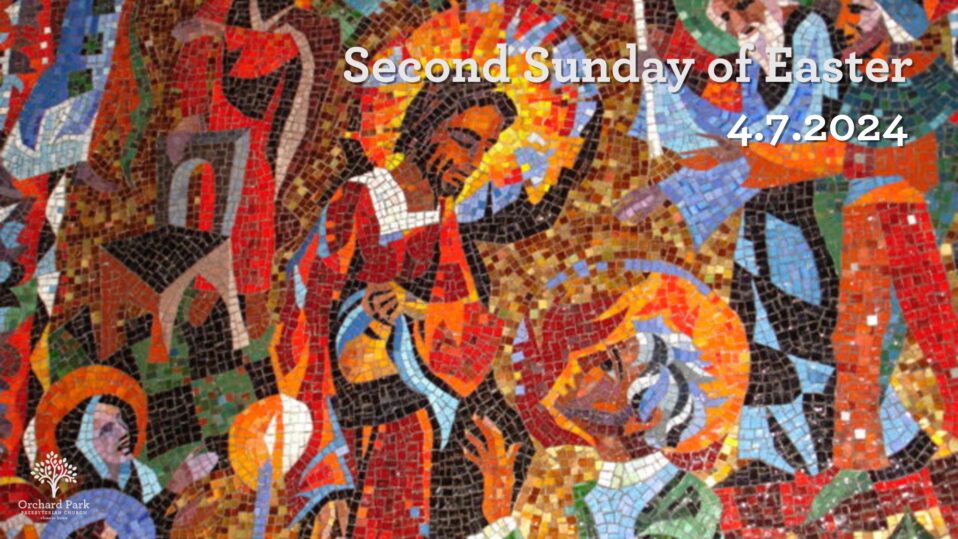The text for today is jam-packed. The call of the tax collector. The father with the daughter who is raised from the dead. The hemorrhaging woman who is healed. There are probably at least five or six sermons here, if not more. For your benefit, I’ll attempt to keep it to two or three this morning. It is, after all, a communion Sunday.
Our passage starts out with the call of Matthew the disciple. We don’t know much about Matthew, besides his profession, and his profession says a lot. Matthew is a tax collector. A tax collector was a con artist, a scammer, a crook. Nobody liked them. Jesus called one considered to be a sinner of the utmost degree and that person followed. Jesus would have known that if ever you wanted people to accept you, you stayed away from tax collectors. But Jesus asked someone who, because of his profession, would have been assumed to always act in self-interest to become one of his disciples.
Not only that, but we read on to discover that Jesus dines with him and his degenerate friends. Jesus knows better. He lives in a social world that is defined by polarities: the righteous and the unrighteous, the religious and the irreligious, the sinner and the Pharisee. Gentiles were avoided, Samaritans were hated, sinners were outcast, lepers were quarantined, the sick were kept apart, and those who buried the dead were considered unclean for a week.
The Pharisees are extremely uncomfortable with this. This upsets the order of things, it disturbs the culture, and what we know is anytime you try to change culture, people get anxious. Jesus is poking at the culture that has been working just fine for a thousand years thank you very much, no need to change anything now.
Jesus stops the story movement here and tells the Pharisees to go study and learn, and he quotes from the Prophet Hosea, “For I desire mercy, not sacrifice, and acknowledgment of God rather than burnt offerings.” What God was seeking from Israel was a renewed and genuine relationship, a change that would alter what His people were offering at His altar. Through prophet, God says I desire mercy, not sacrifice. This is what we are supposed to learn. Will we every learn?
In Hebrew the word for Mercy is, Chesed. It also means loving/kindness, steadfast faithfulness. Jesus quotes from the prophet and uses the word Mercy. Repeatedly throughout the Old and New Testament and in our world today, humanity has tried to replace mercy with something else, like a sacrifice, or a law or judgment. I don’t know why we do that, but we do. We gravitate towards a social order. We like to put ourselves above other people. We like to think that our sins aren’t as bad as someone else’s. Jesus says, put mercy first. He is not saying sacrifices and laws are bad, or should be tossed out, what he is saying is that mercy comes first and the rituals and laws follow. Writer Anne Lamott says more. “We know mercy is always our salvation…But I wish it was something else. I wish it was being able to figure things out, at which I am very good, or to assign blame, at which I am better, or to convince people of the rightness of my ideas.” Yes, wouldn’t it be nice if that were true? If God and everyone else valued my figuring-out and blame-assigning and rightness-convincing skills, life would be so much easier!
Some days the only thing that can cheer me up is something bad happening to someone I hate, preferably if it went viral and the photo of the person showed hair loss and perhaps the lifelong underuse of sunscreen. My heart still leaps to see this. I often recall The New Yorker cartoon of one dog saying to the other, “It’s not enough that we succeed. Cats must also fail.” This is the human condition, that in the face of death, cats must lose.
“Mercy means we soften ever so slightly,” says Lamott. Maybe that’s what I mean when I say my heart feels softer. Sometimes I imagine my heart feeling like a cool, kind of mushy but not drippy and messy thing. Maybe something like softened silly putty? Anyway, I seem to have more sympathy than I used to, less feelings of judgment.
She goes on to say, To me, mercy is sort of like grace in action. It’s grace as that unmerited, beautiful energy of assistance and second winds and buoyancy and fresh air and help to our feet. That’s how I define grace, and mercy seems more like the action of that. It’s the miracle that we’re forgiven, the miracle that we forgive even the most impossible people, including relatives, the miracle that we have found mercy in our hearts for people who have hurt our children. I think probably synonyms are compassion and lovingkindness in the Buddhist tradition and forgiveness almost. [It’s] the tenderheartedness of my relationship with God, the extreme forgiveness of God and, of course, the wonderfully low standards of God so that even someone like me is completely adored and welcomed in the great shalom of God wanting us.
So, mercy is all of those things. To have a merciful heart means your heart has been softened by the meat tenderizer of grace so that even if somebody is wrong or has wronged you, you feel mercifully toward them. You get it. You get that they have suffered. You get what an effort it is for them just to get through the day.
How many people are in need of healing this story? Is it just the dying girl and bleeding woman, or is there someone else? The Pharisees need healing too. The Pharisees need to receive mercy, they don’t feel they deserve, and don’t know they can receive.
Imagine living your whole life thinking that if you want to be right with God, you have to do everything right. Imagine believing that if you break the law, God will punish you into the firey pits of hell and you are out. When Jesus says he has come to save the lost, he’s not just talking about the tax collectors, or the dying child, or the outcast woman, he’s talking about them, who do not know that God’s mercy, his steadfast faithfulness is for them as well. Jesus doesn’t just restore an outcast woman, a child of a wealthy leader, a distasteful tax collector, but also the self-righteous Pharisee. Everyone is welcome to the Table.
As well-known preacher Frederick Buechner puts it, “Faith is a word that describes the direction our feet start moving when we find that we are loved.” So we must allow ourselves to be found by the love of God. We must be found saying yes when Jesus calls, “Follow me.” And we must be found at this table, taking our seat among all of those who call themselves children of God.
So be found today coming to this table. And when you come to this table today, come because Christ has invited you, not because you outrank your friends or enemies, because you uphold the law more faithfully or are more deserving in your discipleship. When you come to this table today, come proclaiming the saving life of Christ till he shall come again. This means the saving life not just for some but for all. When you come to this table, come as a beloved and cherished child of God whether you’re stuck in the lost place or the found place or can’t figure out the difference. When you come to this table, come believing that there is a place set specially for you whether you are a sinner or disciple or both. And come to take a seat with mercy and healing and to take a stand with compassion and grace.
Come this day to take your seat among the sinners and the outcast, believing that all of us are bid come and welcomed to our own reserved seat. And leave here today to take a stand, to leave a legacy of care and compassion, to respond to Christ’s call, “Follow me.”
“Come and follow,” Christ bids. So friends, come and follow, and in so doing, take your seats and your stands. All to God’s glory and honor and praise.
Amen.
Rev. Dr. Shelly Wood



